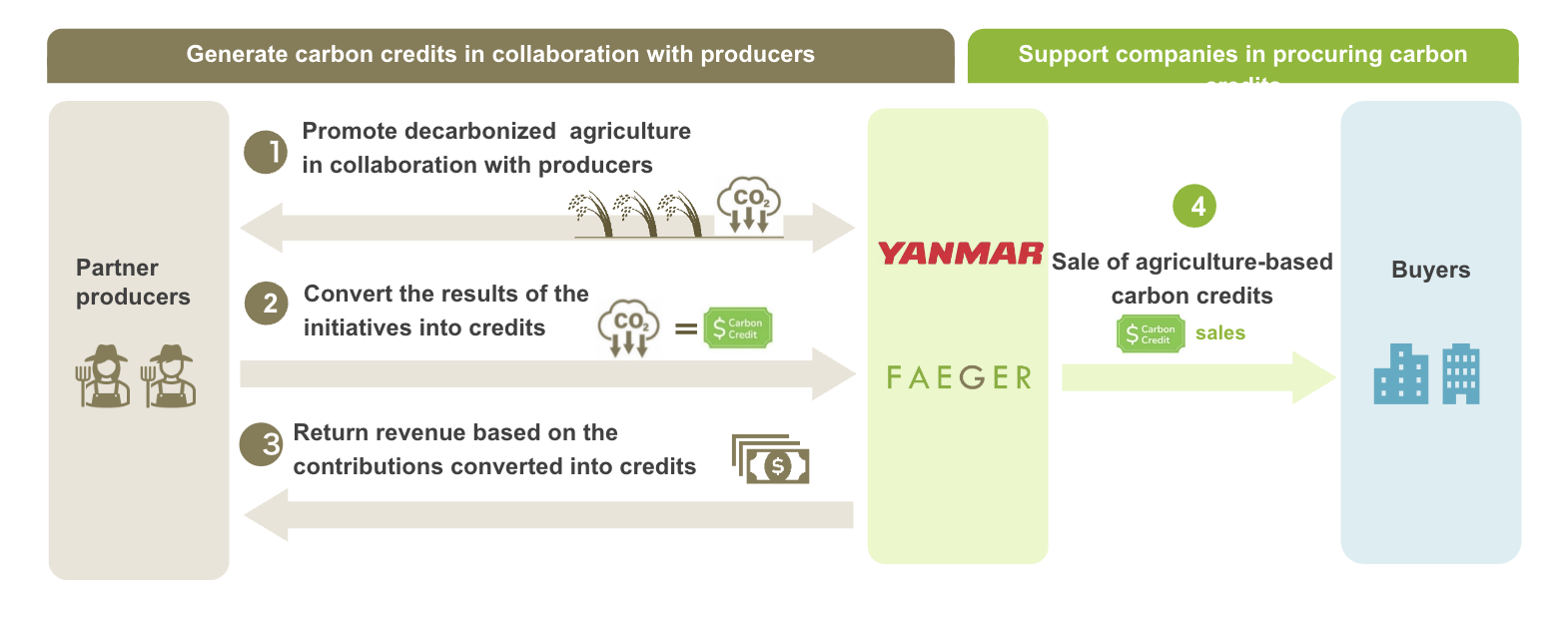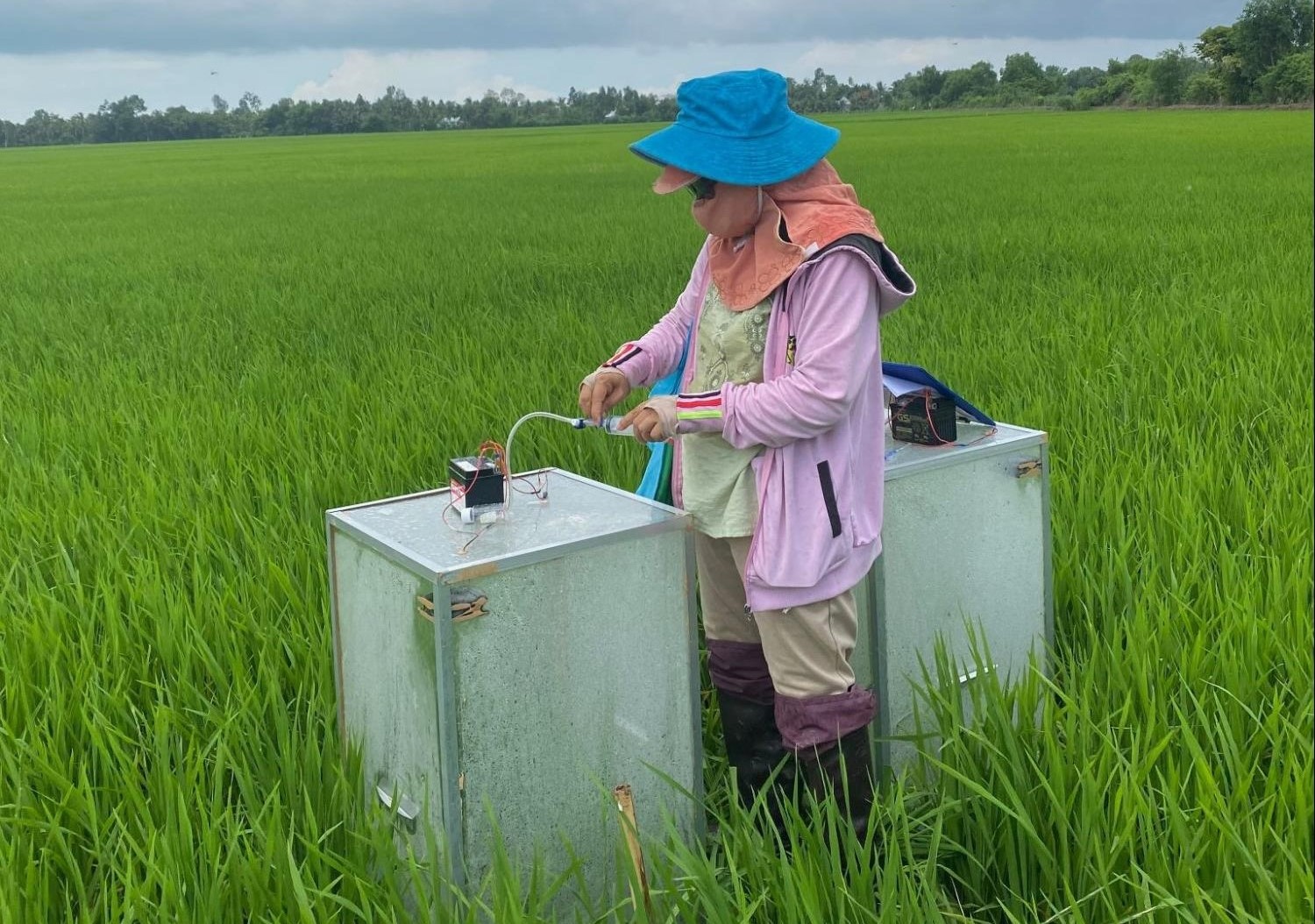2024.07.01
Fager Announces Collaboration with Yanmar Agri Corporation and Yanmar Philippines Corporation for Credit Business
Faeger has agreed to collaborate with Yanmar Agri Co., Ltd. (Headquarters: Okayama City, Okayama Prefecture; President: Kemal Tokoshi; hereinafter "Yanmar Agri"), a group company of Yanmar Holdings, and its local subsidiary Yanmar Philippines Corporation (hereinafter "Yanmar Philippines"), in an effort to reduce methane emissions from rice paddies in the Philippines using the water management method "Alternate Wetting and Drying (AWD)."
Through this collaboration, the aim is to promote decarbonization in the agricultural sector in the Philippines and increase farmers' profits.
In the Philippines, paddy-derived methane is estimated to account for about 20% of the greenhouse gas emissions from all industries*1, thus increasing the need to reduce paddy-derived methane. In addition, Japan's Ministry of Agriculture, Forestry and Fisheries (MAFF) is studying the establishment of MRV*2 (calculation, reporting, and verification) to reduce paddy field-derived methane emissions and promote AWD in the ASEAN region, with the aim of promoting the use of bilateral credits (JCM) in the agricultural sector.
Fager, in cooperation with Yanmar Agri and Yanmar Philippines, will accelerate the spread of these mechanisms to realize the securing of profits for local agricultural producers by creating carbon credits and promoting efforts to decarbonize the agricultural sector.
[Outline of the initiatives]
In this project, Yanmar Agri, Yanmar Philippines, and Fager will cooperate to verify methane emissions and reductions in local rice paddies and simulation of farmers' earnings from carbon credit generation through demonstration tests.
Yanmar Agri and Yanmar Philippines will aim to create carbon credits in cooperation with the farmers, making use of the network of producers and agricultural professionals throughout the Philippines cultivated through the sales of agricultural machinery by Yanmar Agri and Yanmar Philippines, and the carbon credit know-how of FAGER. The Yanmar Group will also engage in carbon offsetting using the credits created through this initiative. In this way, we will contribute to the development of sustainable agriculture that both reduces environmental burdens and increases producers' profits.

About「Alternate Wetting and Drying(AWD)」
AWD is a water management technique that repeatedly controls irrigation in rice cultivation. In the Philippines, rice paddies are usually continuously flooded, and methanogens in the soil generate methane. AWD dries the paddy field for a certain period of time and supplies oxygen to the soil, suppressing the activity of methanogens and reducing methane emissions compared to constant flooding.*3 In addition, regular rice cultivation requires large amounts of water to keep the field flooded, and in areas with insufficient water resources, the waste of water resources is one of the issues. AWD not only significantly reduces water usage by temporarily drying the paddy field, but is also expected to reduce fuel consumption when using pumps.*4 This method is attracting attention from the perspective of reducing greenhouse gas emissions.

<Calculating GHG emissions >
[About Yanmar]
Founded in Osaka in 1912, Yanmar is an industrial machinery manufacturer that was the first in the world to commercialize a compact diesel engine in 1933 successfully. With industrial engines at its core, Yanmar offers solutions to customers' problems by expanding its business globally in areas such as agriculture, construction machinery, energy systems in land, sea, and city fields. Yanmar's brand statement is "A SUSTAINABLE FUTURE - Technology for new abundance." We will continue to contribute to realizing a sustainable society for the next 100 years.
Fager is one of the few companies in Japan that can handle everything from carbon credit generation to sales. We provide companies with "credits that show the faces of producers working towards decarbonization," providing value that includes carbon offsetting and PR. We also support credit generation and purchase, bringing revenue to farmers and promoting activities to reduce CO2 emissions in agriculture.